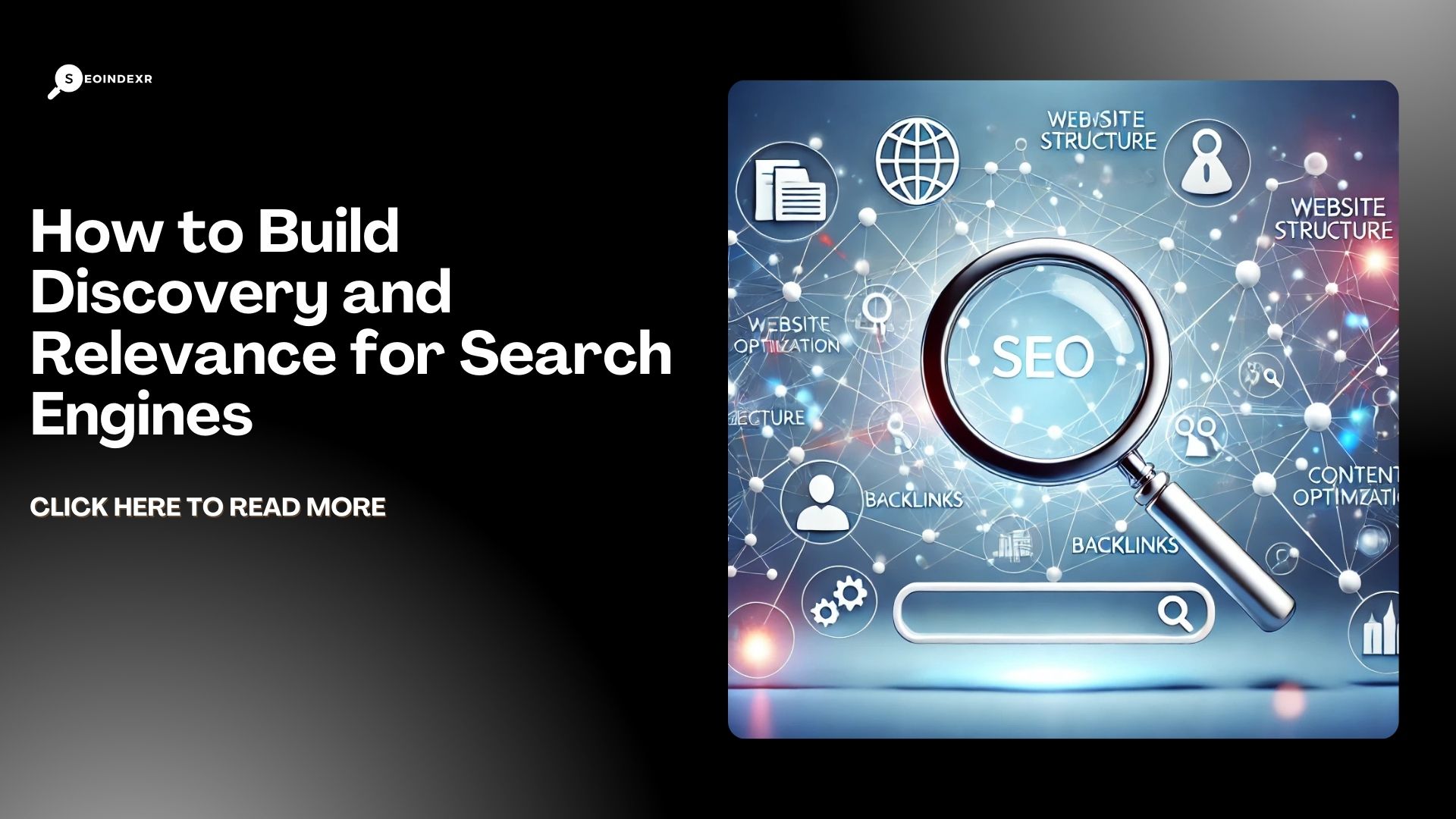Search engines like Google, Bing, and Yahoo are the primary gateways for users to find relevant content online. If your website is not easily discoverable or lacks relevance in search results, you may miss out on significant traffic and business opportunities. In this blog, we will explore effective strategies to enhance your site’s discovery and relevance for search engines.
Table of Contents
ToggleUnderstanding Search Engine Discovery and Relevance
Before diving into strategies, it’s important to understand these two core concepts:
- Discovery: The process by which search engines find and index your web pages.
- Relevance: How well your content aligns with users’ search queries and intent.
A well-optimized website ensures that search engines can both discover and rank it for relevant search terms.
Strategies to Improve Search Engine Discovery
1. Optimize Website Structure and Navigation
- Ensure a clear and logical site hierarchy.
- Use an XML sitemap to help search engines crawl and index pages.
- Implement breadcrumb navigation for better user experience and SEO.
2. Enhance URL Structure
- Use short, descriptive, and keyword-rich URLs.
- Avoid dynamic URLs with unnecessary parameters.
- Implement proper canonical tags to avoid duplicate content issues.
3. Improve Internal Linking
- Use meaningful anchor text for internal links.
- Link to high-priority pages from key content pieces.
- Ensure deep pages are accessible within a few clicks.
4. Leverage Robots.txt and Meta Tags
- Properly configure robots.txt to guide search engines.
- Use meta robots tags to control page indexing and crawling.
5. Increase Website Speed and Performance
- Optimize images and use lazy loading.
- Enable browser caching and minimize HTTP requests.
- Utilize a Content Delivery Network (CDN) for faster load times.
6. Submit Your Website to Search Engines
- Use Google Search Console and Bing Webmaster Tools.
- Submit XML sitemaps regularly.
- Monitor crawl errors and fix issues promptly.
Strategies to Improve Search Engine Relevance
1. Conduct Keyword Research and Optimization
- Use tools like Google Keyword Planner and Ahrefs.
- Optimize titles, meta descriptions, headers, and body content with relevant keywords.
- Target long-tail keywords for better ranking opportunities.
2. Create High-Quality and Relevant Content
- Focus on informative, engaging, and well-structured content.
- Address user intent by answering common queries.
- Use multimedia elements (images, videos, infographics) to enhance engagement.
3. Optimize for Featured Snippets and Rich Results
- Structure content using bullet points, tables, and lists.
- Provide direct answers to common search queries.
- Implement schema markup for better visibility.
4. Enhance Mobile-Friendliness
- Ensure a responsive design that adapts to different screen sizes.
- Use mobile-friendly fonts and buttons.
- Improve mobile page load speed for better user experience.
5. Build High-Quality Backlinks
- Focus on getting links from authoritative sites in your niche.
- Avoid spammy or irrelevant links that may harm rankings.
- Utilize guest blogging, partnerships, and PR strategies for natural link building.
6. Engage Users and Reduce Bounce Rate
- Improve readability with short paragraphs and bullet points.
- Encourage user interaction through comments and social shares.
- Use compelling CTAs (Call to Actions) to keep users engaged.
Conclusion
Building discovery and relevance for search engines is a continuous process that requires strategic optimization, content excellence, and user engagement. By implementing the strategies outlined in this blog, you can improve your website’s visibility, attract more organic traffic, and enhance your search engine rankings.
Need expert SEO services? Contact us today to boost your online presence!





